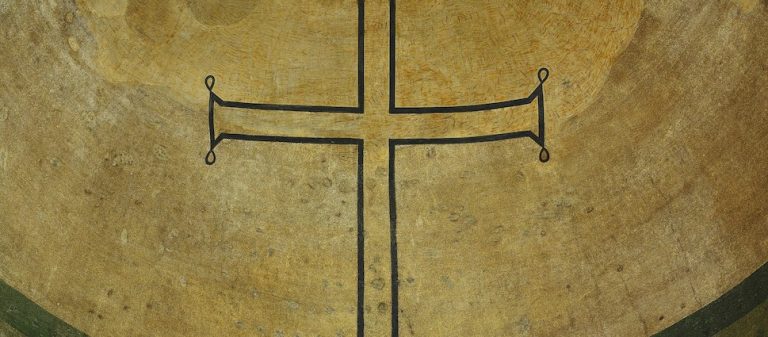 For many, theology has a dry and arid connotation. For others, theology is the necessary objective backdrop for understanding the teaching of the Bible as a whole. For Peter van Mastricht (1630-1706), theology was “the doctrine of living for God through Christ” (8). This reminds us that theology is ultimately about knowing the right God, in the right way, for the right reasons.
For many, theology has a dry and arid connotation. For others, theology is the necessary objective backdrop for understanding the teaching of the Bible as a whole. For Peter van Mastricht (1630-1706), theology was “the doctrine of living for God through Christ” (8). This reminds us that theology is ultimately about knowing the right God, in the right way, for the right reasons.
He treated this description as synonymous with “the doctrine according to godliness” mentioned in 1 Timothy 6:3, which provided the primary exegetical basis of his chapter. As noted in a previous post, this was a common definition of theology among Reformed authors, with Mastricht’s addition of moving Christ into the definition explicitly rather than by implication. In fact, the theoretical-practical nature of his definition had the advantage of being implicitly trinitarian in the writings of most Reformed authors. Theology was the doctrine of living well and blessedly. This good and blessed life comes only by living for God, which we can do through Christ alone as the only Mediator between God and men. Yet without the Spirit, we cannot have genuine faith, through which we lay hold of Christ. Mastricht’s definition of theology has the double advantage of helping us understand classic Reformed approaches to theology as well as promoting a devotionally trinitarian way of doing theology. After tracing his development of each part of his definition, I will draw some practical conclusions from it, showing its advantages for the church today.
If classifying theology as a science is insufficient to capture the biblical scope of theology, then defining theology as a discourse concerning God is inadequate for reaching the ends of theology. Mastricht argues that this is so because Scripture treats theology as the words of life, living for God, and forming a life in a person that is directed towards God (98). Theology is the doctrine of living for God through Christ.
First, he noted, we must understand that theology is doctrine. This does not mean that theology rejects or bypasses the so-called “philosophical habits” of intellect, science, wisdom, prudence, or art (100. I have retranslated “understanding” and “knowledge” here as “intellect” and “science”). Mastricht concluded, “Theology is not so bound to any of these habits that the rest are excluded, but rather it contains the perfection of them all par excellence, for which reason we prefer the broader term ‘doctrine’ so that all the habits can be included in it” (100). God alone can teach us theology, both by revelation and by illumination. Doctrine includes the content of what we believe and it requires the faith by which we believe it.
Second, the object of theology is living for God (101). This is because theology is the only discipline that shapes the whole life, both morally and spiritually. Through the Word of God, the Holy Spirit forms the principle of life in believers as well as “forms all of our actions as a whole” (101). Theology is the noblest discipline, with life as its object, which is the noblest object of all. God is the ultimate end of this life, “(1 Cor. 10:31; Phil. 1:21) without whom all life’s actions will fly off track” (101). This life begins through the new birth and union with Christ through saving faith, which produces all good works in our lives. These works aim at God’s glory and they are according to his commands (102). In this respect, Mastricht reminds us that life in God by grace now differs from life in glory “by degrees” only rather than in essence (1-2).
Third, theology is the doctrine of living for God “through Christ.” He noted that is the point at which our theology differs from that of our first parents before the fall. Mastricht argued that theology must be the doctrine of living for God through Christ because sinners can neither live for God nor know God apart from Christ as Mediator (102. Citing Gal. 2:20; Jn. 15:5; Eph. 1:6). We can be pleasing to God only in Christ, with whom the Father is well pleased. This is where the Spirit came explicitly into Mastricht’s treatment of true theology. Christ procured the Spirit by his merit and the Spirit, in turn, makes us alive and leads us to God. Christ communicates to us strength for living for God by his Word and Spirit (103). This means that the life that the Spirit works in us is literally forming the life of Christ in us: “he himself lives in us (Gal. 2:20) and takes possession of all our faculties in such a way that in all things, at all times, and everywhere, Christ’s humility, obedience, holiness, and righteousness flourish and shine forth, and that Christ’s life, in all these ways, is made manifest in us (2 Cor. 4:11)” (103). This shows that Mastricht’s definition of theology is a shorthand way of pushing dependence on all three persons of the Trinity in the study of theology and, for that matter, every area of life.
Defining theology as the doctrine of living for God through Christ has several advantages. First, this definition of theology balances revealed truth with experienced truth. It shows us that the purpose of theology is not knowing about God, but actually knowing God. This involves both understanding doctrine and experiencing its power, which Scripture clearly has in view as its primary aim. Second, this definition recognizes that conformity to God is the primary end of knowing God. It is not merely right doctrine, or even justification, that is the end of theological studies, but sanctification and glorification. Third, this definition of theology is trinitarian rather than generic. This makes theology distinctively and unambiguously Christian. The church today needs to recover a balance between all of these elements. In this case, older approaches to theology may end up resetting contemporary theology by steering it back in the right direction. Scripture is about knowing the right God, in the right way, for the right reasons. Mastricht helps us remeber this as we develop a system of sound doctrine.
Ryan McGraw (@RyanMMcGraw1) is Morton H. Smith Professor of Systematic Theology at Greenville Presbyterian Theological Seminary in Greenville, South Carolina.

 For many, theology has a dry and arid connotation. For others, theology is the necessary objective backdrop for understanding the teaching of the Bible as a whole. For Peter van Mastricht (1630-1706), theology was “the doctrine of living for God through Christ” (8). This reminds us that theology is ultimately about knowing the right God, in the right way, for the right reasons.
For many, theology has a dry and arid connotation. For others, theology is the necessary objective backdrop for understanding the teaching of the Bible as a whole. For Peter van Mastricht (1630-1706), theology was “the doctrine of living for God through Christ” (8). This reminds us that theology is ultimately about knowing the right God, in the right way, for the right reasons.























